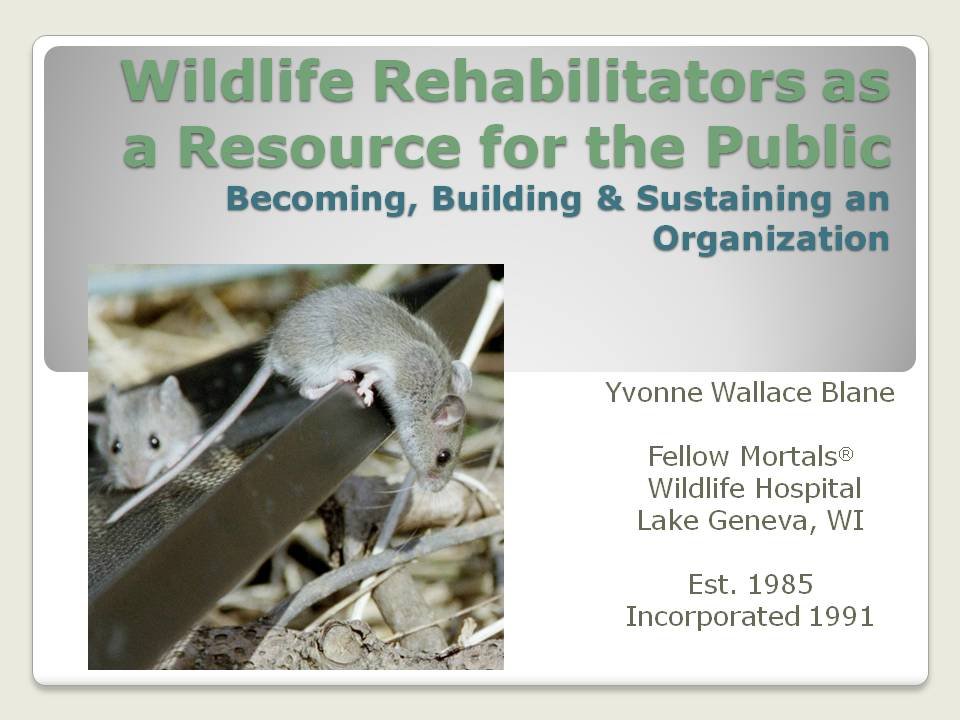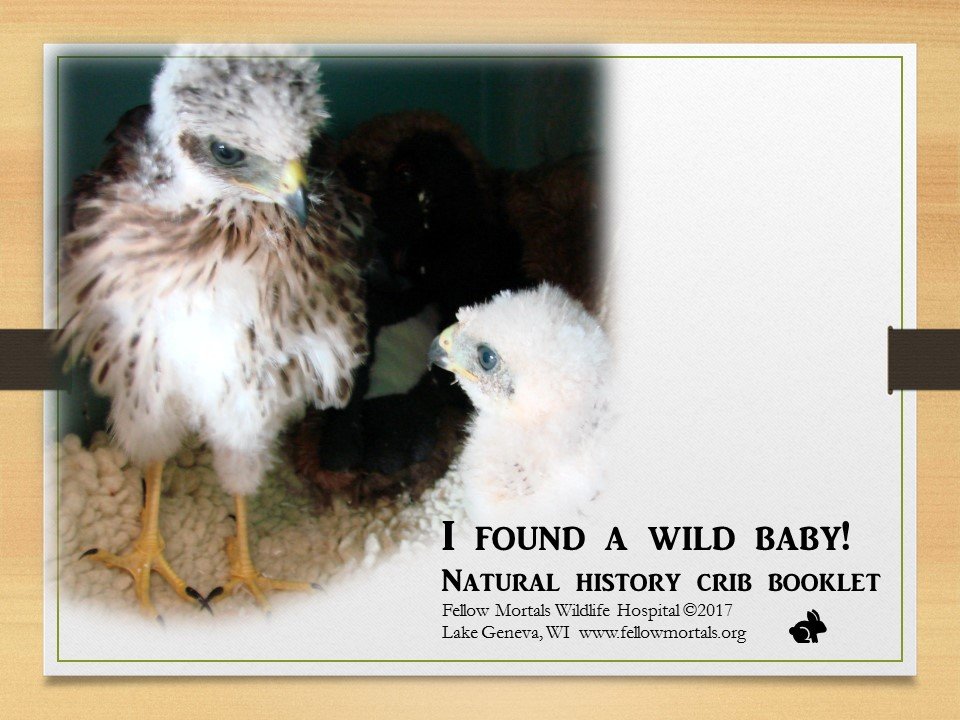By Yvonne Wallace Blane | Executive Director
While most of our reports talk about the wild animals brought to Fellow Mortals for care, we rarely talk about the work that is necessary to provide the best care possible to those animals.
Fellow Mortals has a small staff of five licensed wildlife rehabilitators who, with the help of college interns who join us during the busy months, provides care for approximately 2,000 injured and orphaned wild animals every year.
The way we feed a baby squirrel hasn't changed since 1985--but the tools we use to feed, like syringes and nipples, have changed and improved over the years, making it less likely for little babies to aspirate formula into their lungs by sucking too hard. The formulas themselves have also changed, and continue to change as more is understood about the different nutrition required by each species.
While a baby beaver needs a formula very high in fat, that same diet would be too rich for a cottontail rabbit.
You might wonder how we know when a new nipple is available or a new disease is affecting songbirds, or if there is an antibiotic that is no longer used because something better is available. The answer is that we, as professionals who educate the public about wildlife, also need to continue to be educated about how to care for the wildlife that the public brings to us.
In February, two of our rehabilitators attended the state wildlife rehabilitators conference, and just last week, I attended the national wildlife rehabilitators conference with Karen McKenzie.
In five days, we attended presentations given by rehabilitators and wildlife veterinarians from across the United States and Canada, and had the opportunity to meet people face to face where we had only met online previously.
In addition to attending the symposium, both Karen and I also presented papers to the rehabilitation community on subjects where we had something to share that could help them, as they were helping us.
We love to teach, and we love to learn. To be good at anything, means to keep an open mind and never stop asking for help, and asking how to do it better.
Project reports on GlobalGiving are posted directly to globalgiving.org by Project Leaders as they are completed, generally every 3-4 months. To protect the integrity of these documents, GlobalGiving does not alter them; therefore you may find some language or formatting issues.
If you donate to this project or have donated to this project, you can receive an email when this project posts a report. You can also subscribe for reports without donating.
Support this important cause by creating a personalized fundraising page.
Start a Fundraiser

